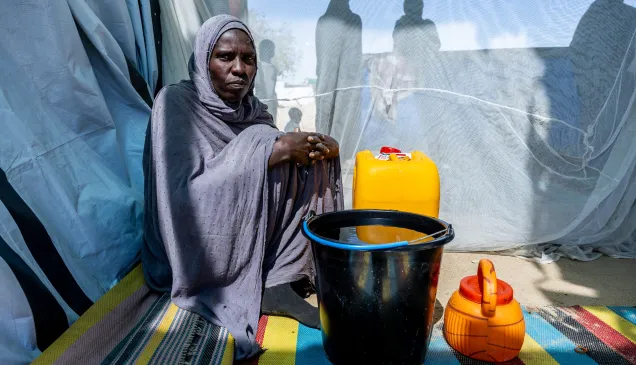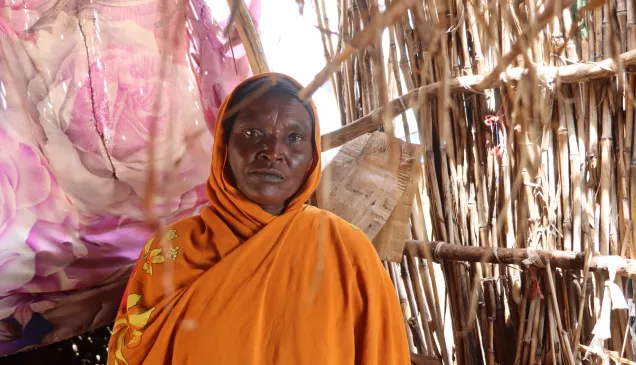Two years of devastation in Sudan: A civilian toll that cannot be ignored
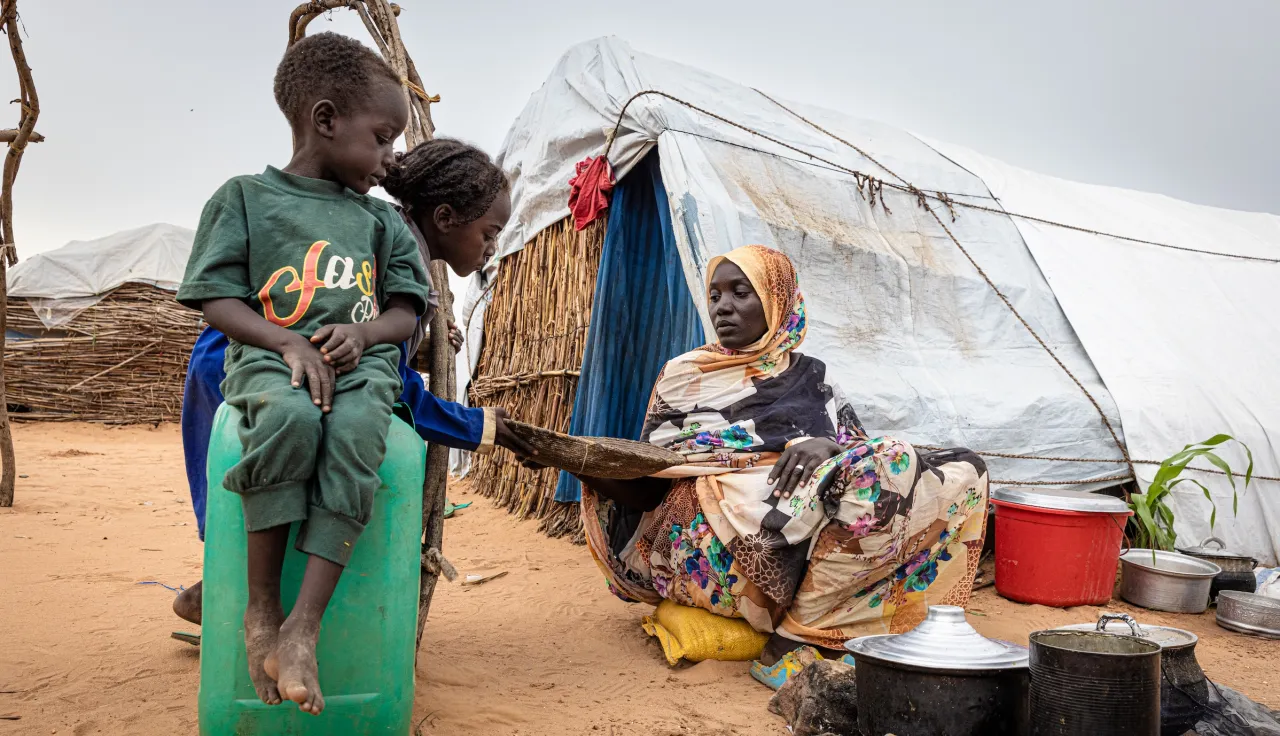
Two years have passed since the eruption of conflict in Sudan on 15 April 2023, and the toll on the population has been staggering. The war, now often overshadowed in global headlines, has devastated millions of lives. Over 12 million people have been uprooted from their homes, three million have fled the country, and Sudan now hosts the single largest internally displaced population in the world.
Behind each of these numbers is a story of loss, pain and fear, but also of unimaginable resilience.
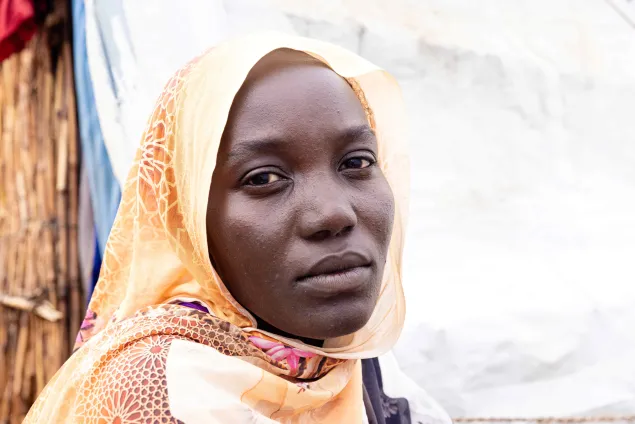
Someya was a henna artist in Western Darfur. After her father was killed in a mosque, she crossed the border to Chad on foot with her three small children. She was pregnant at the time.
"Life in the camp is tough, but we have nothing to go back to,” she says, cradling her baby in Adré, Chad, where she now works doing laundry in people’s homes to support her family.
A country in crisis
Since the conflict began, thousands of civilians have been killed and wounded. Humanitarian access remains severely compromised, despite commitments made by the warring parties in the Jeddah Declaration of May 2023 to protect civilians and uphold international humanitarian law (IHL).
ICRC President Mirjana Spoljaric, visiting Sudan in November 2024, warned: “The humanitarian crisis in Sudan is first and foremost stemming from the disrespect of the laws of war. The consequences of the conflict could last for decades if no action is taken urgently.”
While in some instances respect for IHL has enabled life-saving evacuations — such as the safe removal of 300 orphans and 70 of their caretakers from combat zones in mid-2023 — violations continue to define this brutal conflict: hospitals are attacked, civilians are targeted, and sexual violence is widespread.
The collapse of health care
An estimated 70–80 per cent of health care facilities in conflict-affected areas are no longer functioning. This has left two out of every three people without access to basic medical care. The effects are devastating: women giving birth without assistance, untreated trauma injuries, and preventable deaths from chronic conditions.
At Al Saudi Hospital in Al-Fasher — the last operational civilian hospital in North Darfur — a January 2025 attack killed dozens and severely damaged the building. Dr. Abdulaziz Asw described the dire situation: “At times, we have no choice but to have patients sleep under trees when all available beds are occupied… However, regardless of their location within the hospital, we try hard to provide the best care we can for every patient. It is essential to emphasize that targeting hospitals, health care centres, or health care facilities is a severe breach of international law. Medical personnel working in these facilities adhere to the principle of neutrality and must be kept from harm’s way.”
In response to the health-care crisis, the ICRC has increased support across Sudan and neighboring countries.
In 2024 alone:
- 88 hospitals received trauma care supplies, helping treat more than 42,000 patients.
- It ensured the continuity of six hospitals through operational and logistical support;
- It deployed a mobile surgical team to Atbara Teaching Hospital, which treated more than 200 patients, some of whom had traveled more than 2,000 kilometers for treatment.
- With the effects of the crisis impacting health systems across the region, similar teams are now caring for Sudanese refugees in South Sudan.
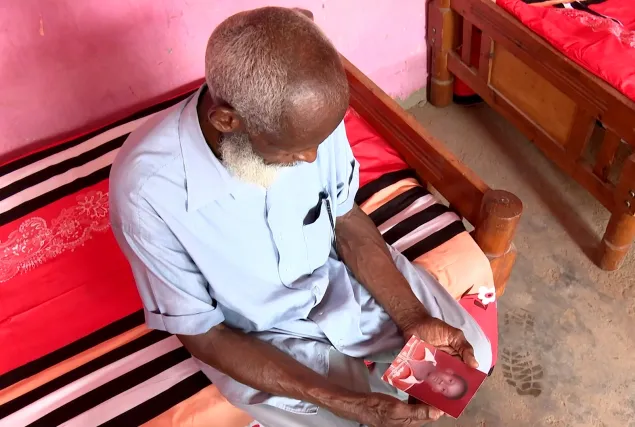
“Every time I dream, I see him… I hope that he will come back to us, safe and sound, unharmed. When he returns, God willing, we will prepare for his wedding, and people will come to share his joy."
A father, Othman Moussa Hassan, whose son disappeared in November 2023
The Silent Epidemic of Sexual Violence
According to the accounts collected, sexual violence is widespread in Sudan. With most medical facilities no longer functioning, many survivors cannot access lifesaving medical services and psychosocial support. Moreover, sexual violence is both a cause and a consequence of forced displacement. In 2024, more than 100,000 people fleeing Sudan flooded into Renk, South Sudan, overwhelming the few available services addressing gender-based violence.
Many survivors avoid seeking care, or seek it only late, for fear of stigmatization or reprisals. As Zainab Abdulkhaliq Zahir, head of sexual violence operations at the ICRC, explains: "Many women who became pregnant hesitated to seek medical help quickly. Their families often struggled to come to terms with what had happened."
To address this situation, the ICRC and its partners have trained health workers and stepped up their awareness-raising activities to combat stigma and change attitudes.
Essential infrastructure under attack
Hospitals, water stations, power grids, and communication lines have been repeatedly targeted, making survival more difficult every day. This led to an outbreak of cholera and other waterborne diseases, as only unsafe water sources remained, resulting in thousands of cases and hundreds of deaths.
In 2024, the ICRC helped improve access to drinking water for two million people. But the attacks continue, and the needs remain immense. “We are seeing a worrying pattern,” said an ICRC spokesperson. “Power grids, hospitals, and water systems are not just infrastructure; they are matters of life and death.”
Families torn apart
By December 2024, the ICRC had received nearly 7,700 requests to search for missing persons, a 66% increase over the previous year. These cases represent only a small fraction of the total number of families desperately seeking to trace their loved ones.
In 2024 alone, the ICRC:
- Reconnected or provided clarity to 457 families about missing members.
- Facilitated over 45,000 phone calls between family members within Sudan.
- Supported 400,000 calls for refugees in neighboring countries trying to reach relatives.
A regional ripple effect
The war’s effects are spilling across borders. In Adré, Chad – a town of 12,000 – 150,000 refugees have come as a result of the conflict. Nearly 90 per cent are women and children who crossed the border painfully on foot, fleeing brutal violence. In Boro Medina, South Sudan, thousands more have settled in a town that had only 5,000 residents before, many in poor health and traumatized by what they have escaped from.
Displacement, resource scarcity, and inflation are causing increasing instability in the region. Without additional international support, the humanitarian situation risks spiraling further out of control.
The humanitarians on the front lines
The Sudanese Red Crescent Society (SRCS), with over 9,000 volunteers, continues to deliver life-saving aid across the country — even in the most dangerous conditions.
Since the start of the conflict, both the ICRC and SRCS have lost staff in the line of duty.
Despite the risks, SRCS and ICRC efforts in 2024 included:
- Food distribution for over 230,000 people
- Relief items for nearly 100,000 people
- Financial assistance for nearly 380,000 people
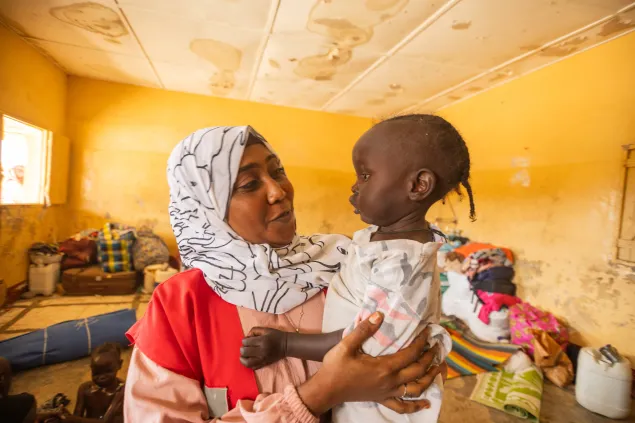
“The stories of fathers who lost daughters, mothers who lost children — they stay with me. I cannot forget them.”
Wajdan Hassan Ahmed, volunteer, Sudan Red Crescent Society, Port Sudan
A call for humanity
The ICRC reiterates its urgent call to all parties in Sudan:
- Respect international humanitarian law and the commitments of the Jeddah Declaration.
- Protect civilians, infrastructure, and humanitarian workers.
- Enable safe, sustained access for humanitarian aid.
- Preserve a humanitarian space where neutral organizations can operate freely, focused solely on helping those in need.
The international community must not turn its back. The lives of millions — and the future stability of an entire region — hang in the balance.

